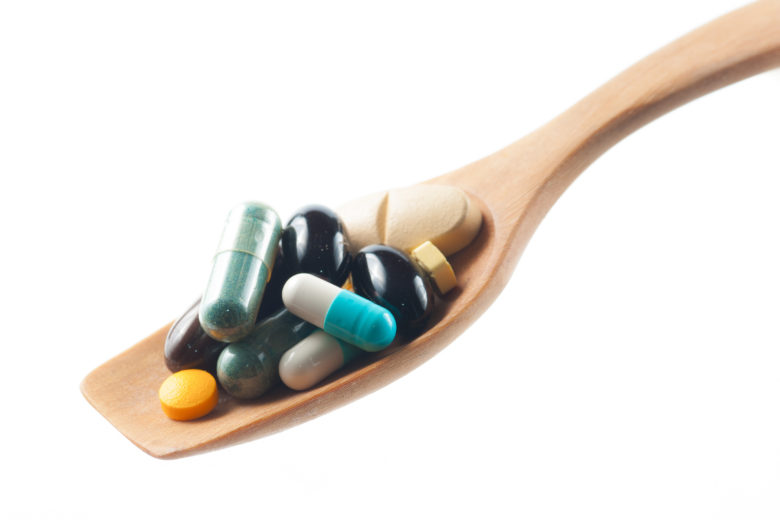
You may have seen the recent headlines — “Banned Stimulants Found in Supplements” or “Hidden Dangers in Dietary Supplements” — and wondered, are supplements safe? ![]()
Indeed, the supplements industry has a long history of tainted products, which attracted attention in the late 1990s when the stimulant ma huang, or ephedra, was linked to organ damage and deaths and was consequently banned in 2004.
More recently, another banned substance, methylsynephrine (also called oxilofrine), has been found in supplements that did not list it on the label. Methylsynephrine is a pharmaceutical stimulant that increases blood pressure and stimulates the heart but which is not approved for use in the U.S. as either a supplement or prescription drug. It’s also listed on the World Anti-Doping Agency’s 2016 “Specified Stimulants” list, and a number of athletes who tested positive for the banned substance have claimed they unknowingly consumed methylsynephrine via contaminated sports supplements.
Both professional and amateur athletes are groups targeted by — and have paid the consequences for — adulterated supplements. Herbal remedies advertised for management of chronic diseases such as diabetes, hypertension and arthritis, or for weight management or erectile dysfunction, are also likely to be tainted. A 2016 study on the prevalence of methylsynephrine in dietary supplements analyzed 27 brands and found the substance present in 14 of them — with doses ranging from 0.0003 to 75 milligrams per cap or tablet. Researchers discovered that if consumers took the recommended dose listed on the label, they could potentially consume as much as 250 milligrams per day and experience side effects including vomiting, agitation and cardiac arrest.
But methylsynephrine is not the only unlisted additive found in supplements. In a 2014 review of supplement contamination, additives designed to intensify the claimed effects of natural supplements were found. The study indicated that synthetic ingredients were not listed on labels — including approved pharmaceuticals or ones that are no longer approved by the U.S. Food and Drug Administration because of side effects.
Since the ephedra ban, other stimulants such as 1,3-dimethylamylamine, or DMAA, have emerged in supplements sold in the U.S. for weight loss, enhanced brain function and improved athletic performance. And a collaborative product testing investigation by the public health organization NSF International found the stimulant N,a-diethyl-phenylethylamine, or N,a-DEPA, which is similar in structure to methamphetamine, in a sports supplement called Craze, which did not list it on the product label.
Since the FDA has no involvement with supplements until they are already on the market, many industry experts predict tainted products will likely continue to occur. But this is not to say that all supplements are dangerous.
In fact, millions of Americans successfully consume them without ill effect. Some supplements have shown to be beneficial for health, including folic acid taken by women of childbearing age for birth defect reduction or vitamin B12 taken by people over 50 experiencing reduced ability to absorb the nutrient from food. In addition, calcium and vitamin D are routinely recommended for bone health, and iron and other vitamins and minerals are regularly taken for anemia.
When supplements are advised by a medical professional to target specific needs, they can be beneficial to health. While people should attempt to get the majority of their nutrients from food, that is not always possible for some populations or individuals with certain conditions. The FDA recommends consumers consult with a medical professional before using dietary supplements, given the potential for strong biological effects and the need to establish a safe dose based on individual needs.
In addition, consumers who choose to supplement should use caution and look for independent quality assessment seals and third-party verification for added safety.





